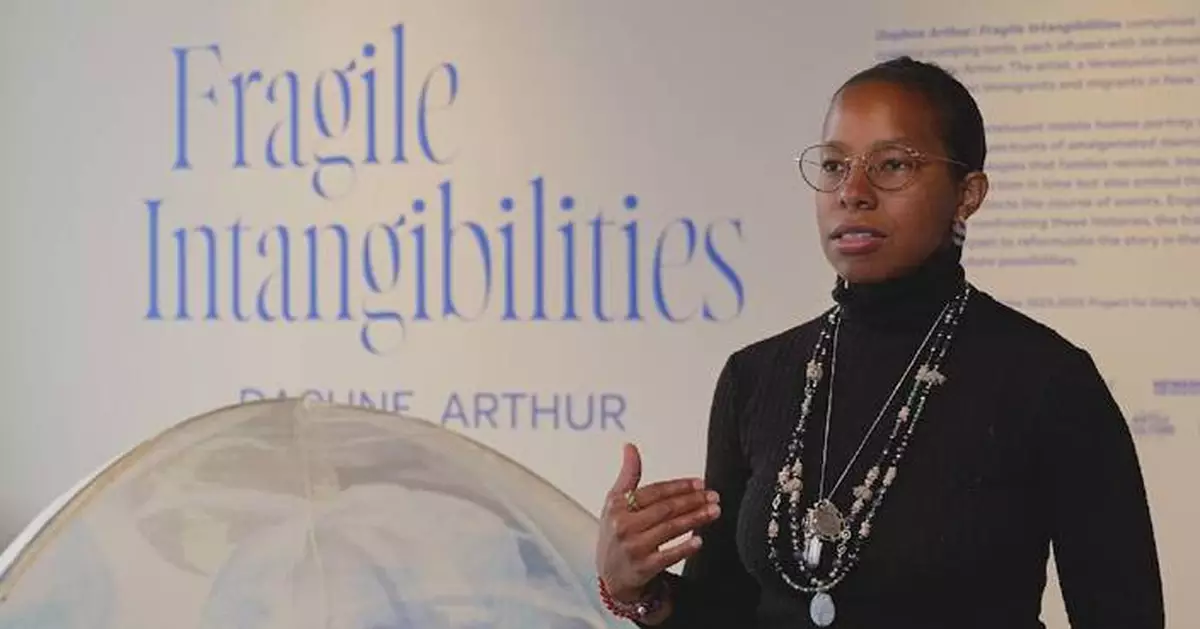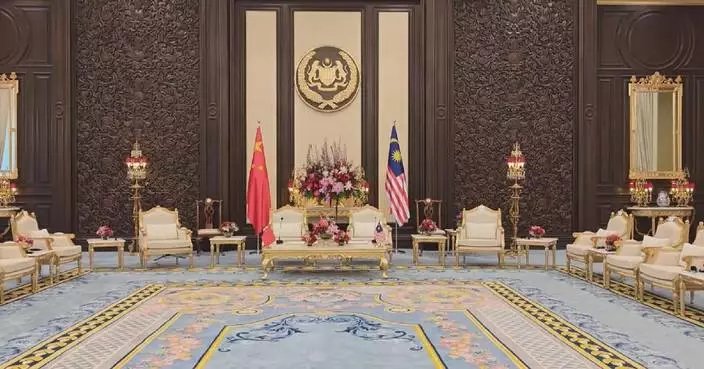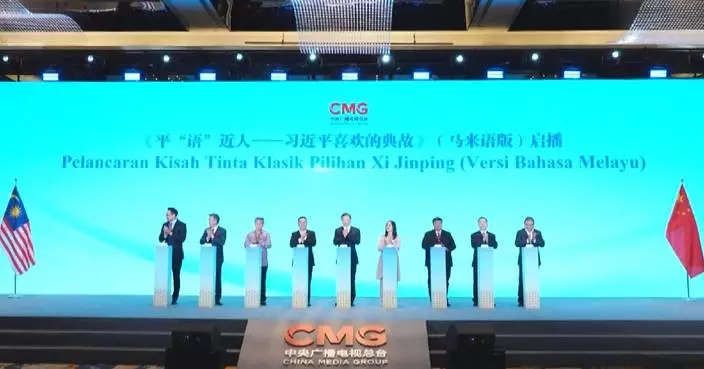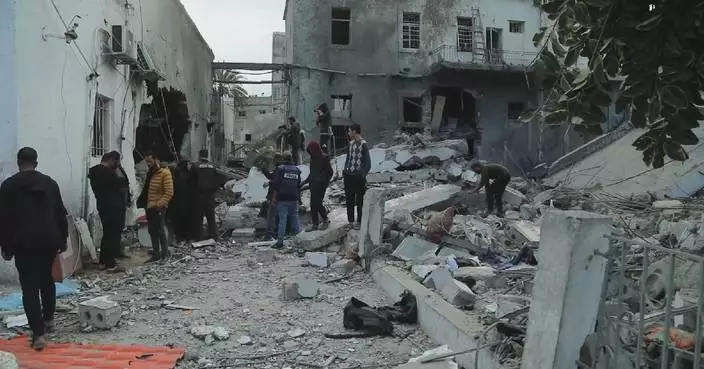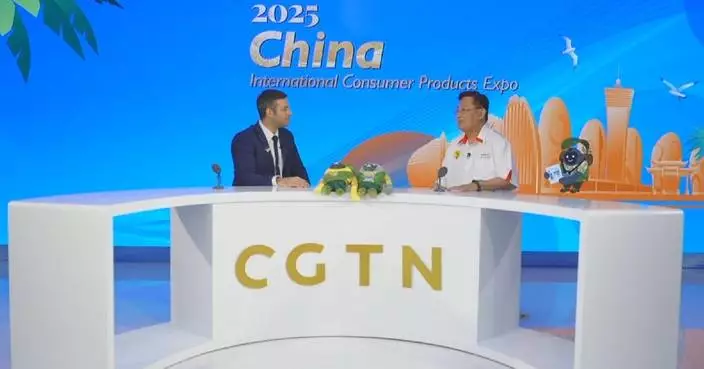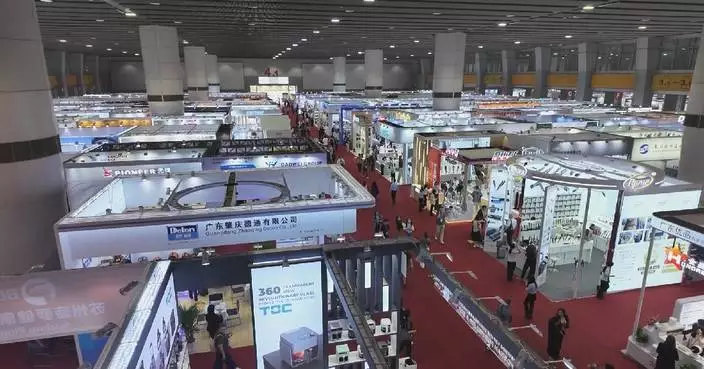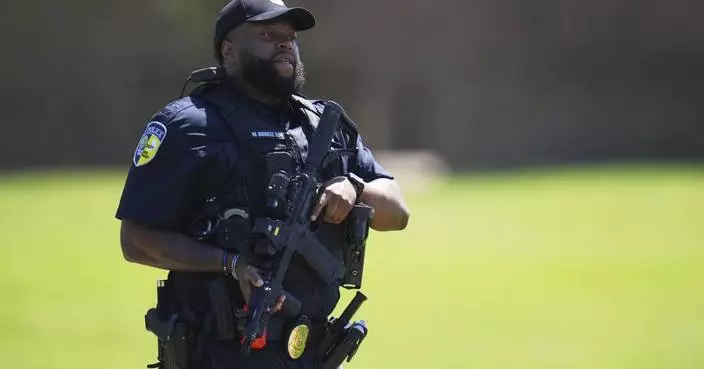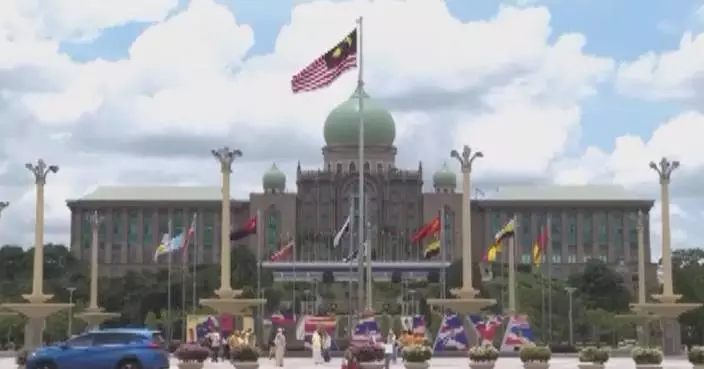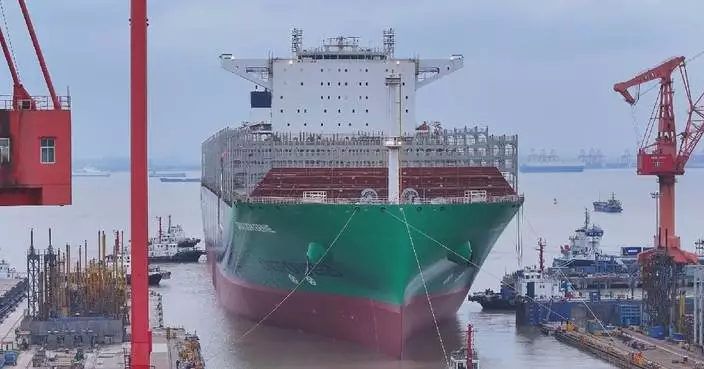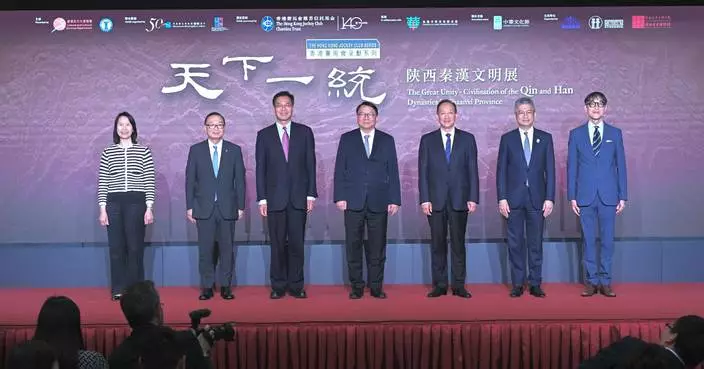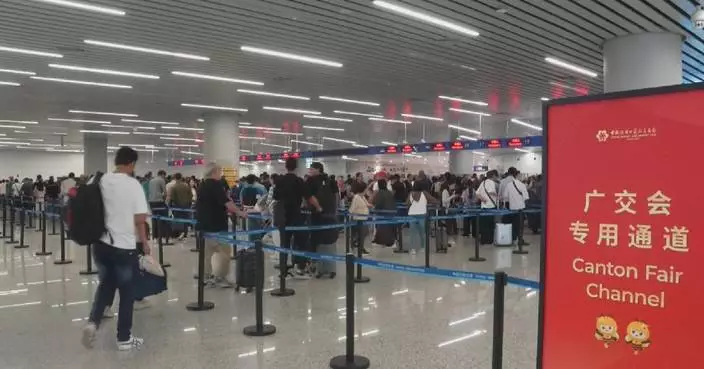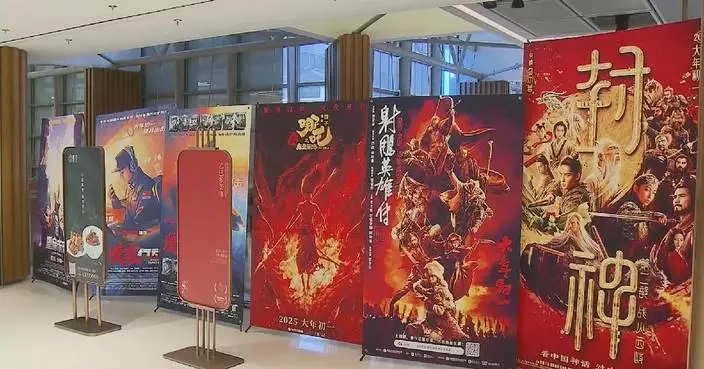Venezuelan artist Daphne Arthur spotlights migrants' journeys in her new exhibit amid U.S. deportation tensions, drawing from her own experience immigrating at age 12 and the stories she has seen of migrants.
Named "Fragile Intangibilities", the new exhibit features a collection of hand-sewn silk organza camping tents inspired by a series of conversations Arthur had with 19 subjects - including from Africa, the Caribbean, and Asia.
"I was interested in the stories that people carry, and if you are forced to leave your home, how do you retain a sense of identity," Arthur said.
Graduated from the Yale School of Art, Arthur said the images of migrants living in temporary tents and being deported by the police provoked her to question what a home truly is.
Almost three decades later - her own experience as an immigrant settling in the U.S. helped inform her work as an artist - and was the genesis of her newest exhibition.
"I saw a segment of people in the border of the U.S. and Mexico, and there were, Haitians and Central American individuals that were attempting to cross the border, and they were, using tents as their mobile homes. And in this moment, the border police were mandated to remove these homes. And so I was kind of perplexed by this idea of, the fragility of a tent as a home, something that kind of helps you feel safe, but also the tenuous elements of the material and how easy it was, to be disposed off," she recalled the scenes of immigrants she saw.
Seven of Arthur's artworks are on display, each representing the story of an immigrant to the U.S., and four blank pieces symbolize the millions of nameless, faceless immigrants whose stories remain untold.
The hands holding the tents in the exhibit were created from molds of her subjects' hands, adding a deeper, more personal dimension to each individual's unique journey.
The installation is part of the artist-in-residence program at Project for Empty Space' in New Jersey. The co-director, Rebecca Pauline Jampol, believes Arthur's new exhibit gives voice to their journeys and how they've navigated the cultural shifts that come with picking up their roots.
"Her work around immigrant stories is so important not only to our program and to the city of New York, but to the moment that we're in right now where immigrant communities are being silenced and there is fear embedded in everyday livelihood," Jampol said.
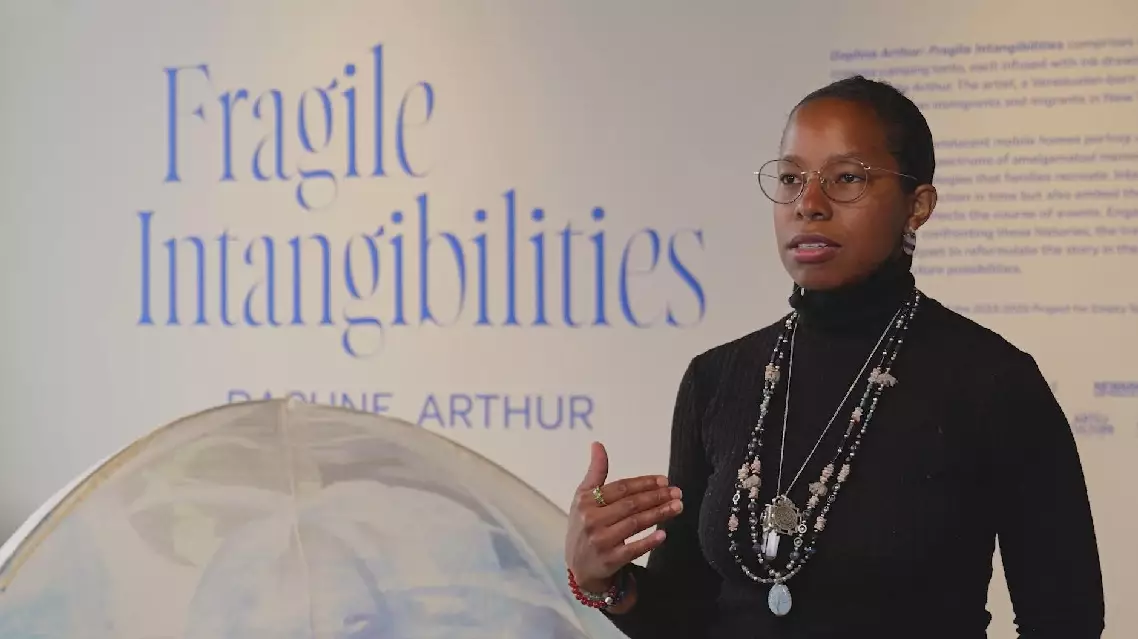
Venezuelan artist highlights migrants’ stories amid US deportation tensions
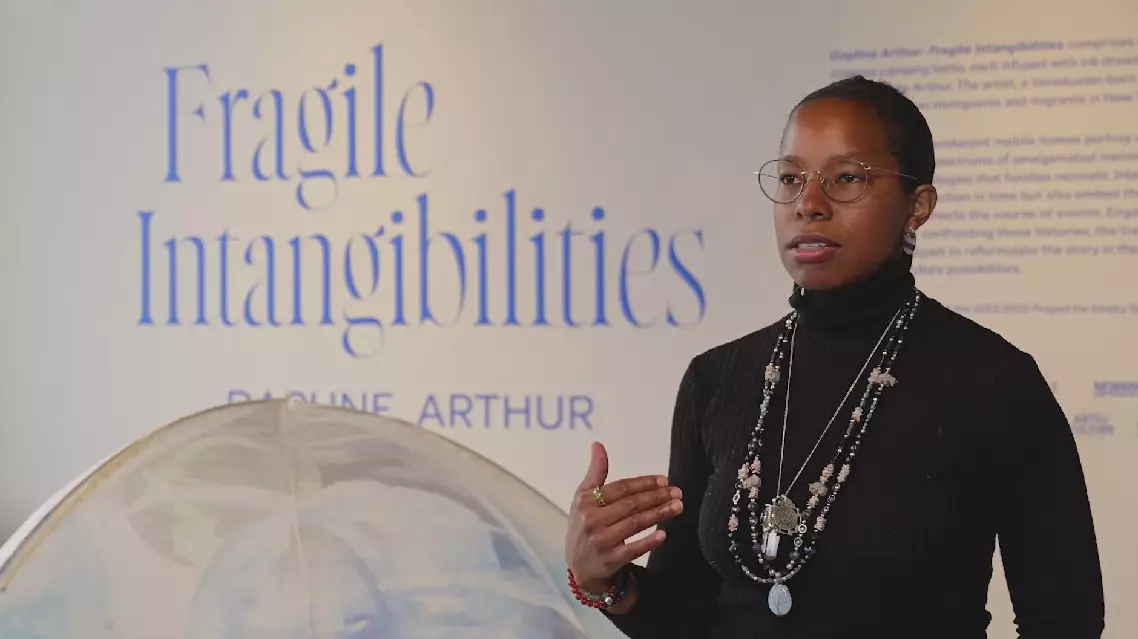
Venezuelan artist highlights migrants’ stories amid US deportation tensions
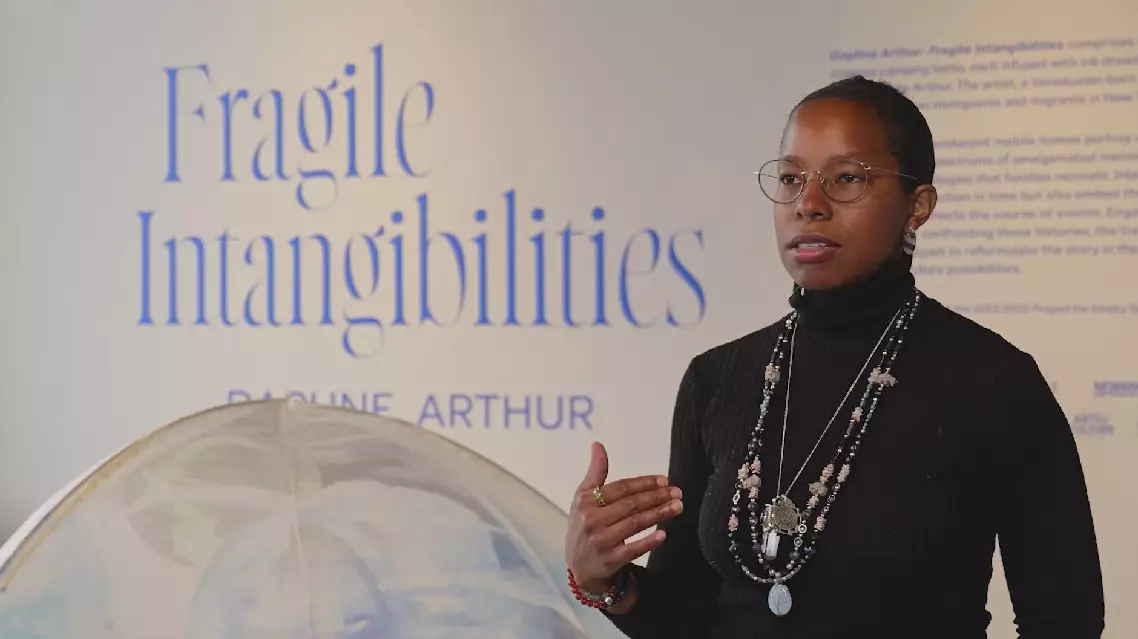
Venezuelan artist highlights migrants’ stories amid US deportation tensions
Iran's Supreme Leader Ali Khamenei on Tuesday warned against "extreme optimism or pessimism" in the country about the indirect talks between Iran and the United States.
He made the remarks at a meeting with senior government officials in Iran's capital Tehran while pointing to the talks between Iranian Foreign Minister Seyed Abbas Araghchi and U.S. Special Envoy to the Middle East Steve Witkoff on Iran’s nuclear program and removing sanctions, the first round of which was held in the Omani capital Muscat on Saturday, according to a statement published on his website on Tuesday.
"We should not be extremely optimistic or extremely pessimistic about these talks," he said, adding that the negotiations may or may not yield results.
He stressed, "We are, of course, very distrustful of the other side. However, we are optimistic about our capabilities."
The Iranian leader also cautioned against "tying the country's affairs to the talks," emphasizing that activities in industrial, economic, construction, and cultural sectors, as well as the implementation of major projects, should proceed uninterrupted, as they are unrelated to the talks in Oman.
The second round of the indirect talks between Iran and the United States is scheduled to be held on this coming Saturday in Muscat.
According to U.S. media reports on Tuesday, the second aircraft carrier strike group deployed by the U.S. military in the Middle East had arrived in waters near Yemen, ahead of the second round of negotiations between the United States and Iran.
Satellite images show that the U.S. aircraft carrier Carl Vinson is currently positioned near Socotra Island off the coast of Yemen in the Gulf of Aden, according to the U.S. media reports.
Accompanying it are a cruiser and two destroyers, thus forming a dual U.S. carrier strike group in the region.
The U.S. Navy's Fifth Fleet, headquartered in Bahrain, declined to provide details about the mission of this carrier strike group.
The latest talks between Iran and the Untied States were proposed by U.S. President Donald Trump, who threatened Iran with bombing and secondary tariffs if Iran did not come to an agreement with the United States over its nuclear program.
Iran signed a nuclear deal, formally known as the Joint Comprehensive Plan of Action, with six major countries -- Britain, China, France, Germany, Russia, and the United States -- in July 2015, accepting restrictions on its nuclear program in return for sanctions relief.
However, the United States withdrew from the deal in May 2018 and reinstated sanctions, prompting Iran to scale back some of its nuclear commitments. Efforts to revive the nuclear deal have not achieved substantial progress.
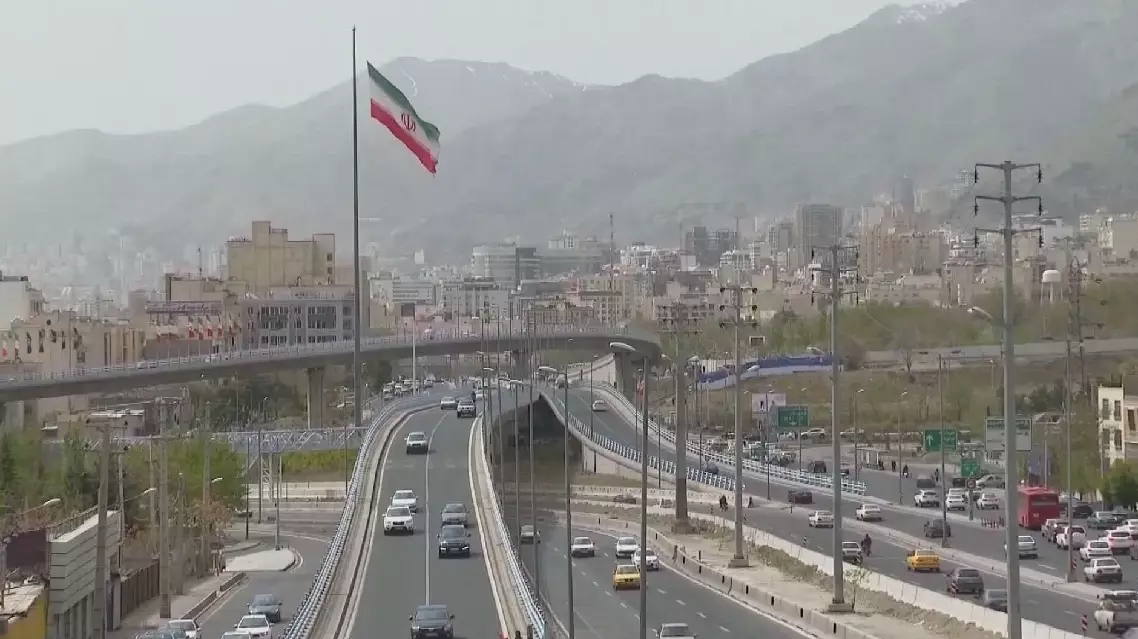
Iranian leader warns against extreme optimism, pessimism about talks with US





